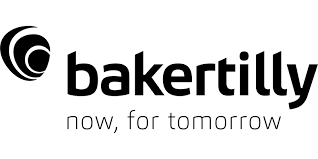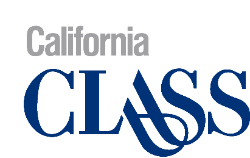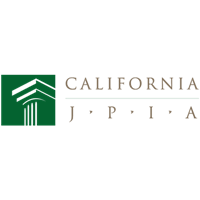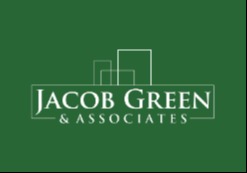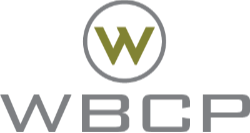City Managers
The City Managers Department provides networking opportunities and fosters professional development for department members through the Cal Cities' educational and communication tools. It also serves as a technical and advisory resource to Cal Cities through its policy committee representatives.
Subscribe to the City Managers Listserv to receive the latest updates and information.
Made up of city managers from across the state, the City Managers Department:
- Promotes the purposes and goals established in the League of California Cities Constitution and Bylaws.
- Serves as a technical and advisory Department to Cal Cities.
- Strives for the continued acceptance and advancement of city management through professional accomplishment and ethical standards as embodied in the International City/ Management Association Code of Ethics.
- Seeks the personal development and enrichment of its members through the promotion and conduct of conferences, seminars, and related training or communication methods.
- Represents the ICMA as their official statewide organization unit and maintains a working relationship with ICMA.
2023-2024 Department Officers
- President – Karen Pinkos, City Manager, El Cerrito
- President-Elect – Thaddeus McCormack, City Manager, Lakewood
- Vice President – Kelly McAdoo, City Administrator, Santa Barbara
- Immediate Past President – Justin Hess, City Manager, Burbank
- Department Director – Jim Lewis, City Manager, Atascadero
At-Large Representatives
- Southern CA under 100,000 Population – Jennifer Cervantez, City Manager, Rancho Santa Margarita
- Southern CA over 100,000 Population – Sean McGlynn, City Manager, Escondido
- Northern CA under 100,000 Population – Jessica Deakyne, Assistant City Manager, Novato
- Northern CA over 100,000 Population – Maraskeshia Smith, City Manager, Santa Rosa
Appointed by the department president, each department has at least one representative on each of Cal Cities' standing seven policy committees that can provide technical information to the committee as a whole to ensure that the department has a voice in the decision-making process, and make recommendations to the board of directors on legislative and policy issues.
- Community Services – Ken Domer, City Manager, La Verne
- Environmental Quality – Niroop Srivatsa, City Manager, Lafayette
- Governance, Transparency, and Labor Relations – Elisa Cox , Assistant City Manager, Rancho Cucamonga
- Housing, Community, and Economic Development – Thaddeus McCormack, City Manager, Lakewood
- Public Safety – Gerry Beaudin, City Manager, Pleasanton
- Revenue and Taxation – Pamela Wu, City Manager, Cupertino
- Transportation, Communications, and Public Works – Dennis Wilberg, City Manager, Mission Viejo
For more information about the appointment process, please contact Meg Desmond.
Appointed by the department president, each department has at least one representative on each of Cal Cities' standing seven committees that can provide technical information to the committee as a whole to ensure that the department has a voice in the decision-making process, and make recommendations to the board of directors on legislative and policy issues.
- Community Services – Nat Rojanasathira, Assistant City Manager, Monterey
- Environmental Quality – Niroop Srivatsa, City Manager, Lafayette
- Governance, Transparency, and Labor Relations –
- Housing, Community, and Economic Development – Alex McIntyre, City Manager, Ventura
- Public Safety – Sean McGlynn, City Manager Santa Rosa
- Revenue and Taxation – Eric Levitt, Simi Valley City Manager
- Transportation, Communication, and Public Works – Dennis Wilberg, City Manager, Mission Viejo
For more information about the appointment process, please contact Meg Desmond.
The following information is meant to assist the liaison in their role and serve as a resource to the Area Manager Groups. This section includes documents and information that represent best practices, useful tools, contact information, and more to strengthen and benefit the City Managers Department and Area Manager Group connection.
- Problems with mayors, council members, and department heads;
- Overall management situations and quandaries; and
- Other job-related concerns.
The Senior Advisor is a two-way communication channel to and from the League of California Cities and the International City/County Management Association (ICMA). The program is designed to supplement, not to take the place of, normal regular contacts between city managers, Cal Cities, and ICMA. It is not intended to provide assistance to the practitioner in the more mundane aspects of his or her daily work; to provide, for instance, specific advice regarding particular legislative proposals, etc.
The City Managers Department of the League of California Cities presented their awards at the City Managers Conference, Feb. 7-9, 2024. Click here to read more.
- The John H. Nail Award is presented to an outstanding municipal assistant who has contributed significantly to his or her city government and to the advancement of the community as a whole.
- The Wes McClure Award of Distinction honors a leader making a difference for the profession. It honors one city manager’s outstanding career service, leadership, ethics, expertise and innovation.
- The Award for the Advancement of Diverse Communities recognizes a city manager or assistant successful in promoting the advancement of diversity within the community and workplace by developing and implementing effective programs, policies and/or practices.
Please send completed forms to Meghan McKelvey at mmckelvey@calcities.org with the subject line “award nomination.”
- City Managers Department Bylaws
- City Managers Listserv
- Cal Cities Past City Manager Department Presidents
City Managers Conference
February 5-7, 2025
The Westin Rancho Mirage
71-333 Dinah Shore Drive, Rancho Mirage, CA
Designed for city managers and assistant city managers, this conference provides city officials with the essential information and updates needed to effectively run their cities and best position their communities for the future. Previous topics include diversity, relationships with council members, public safety, financials, and more.
Save the date for the next seminar on Feb. 5-7, 2025 at the Westin in Rancho Mirage.
For questions, please contact event program manager, Erin Wylder.
For registration questions, please contact Registrar, Megan Dunn.
For sponsorship questions, please contact Associate Manager, Exposition Sales and Event Sponsors, Amy Wade.
Conference Information
View the 2024 City Managers Conference program here.
2024 Conference Session Materials
- A Better Way The Facilitated CAO Performance Review - Perkins
- AI Powered Cities - Empowering Municipalities through New Technology
- Career Compass 104 - Workforce Trends You Cant Ignore
- Crisis Management for Cities
- How to Survive Your Annual Performance Evaluation
- Lions Tigers and Landslides Oh My
- Organizational Culture and Ethics
- Supporting Civility Supporting Civility Through Effective Resident Engagement
- The Economic Adventure - City Managers Unleash Their Superpowers
- The Electric Future
- Walking the Line - Addressing Complaints Against Elected Officials
- Who Are We - A Profile of the Profession
Previous Conference Session Materials
- General Session, Feb. 8: Cal Cities Delivers
- Delivering Economic Development Successes in Partnership with your Council and Community
- Economic Update
- Ethics Matter Be Inspired by Your Professional Values
- First Amendment Folies Balancing Constitutional Rights of Free Speech while Maintaining City Operations
- Observations from Local, State, and National Economists - Egan
- Observations with Local, State, and National Economists - Hollingshead
- Observations with Local, State, and National Economists – Rupert
- One Size Doesn’t Fit All: Alternative Responses to Mental Health and Other Crises
- Sales Tax: Understand Hidden Nuances of California Sales Tax Distribution
- Small City Succession Planning Creating a Culture of Growth
- Strategies to Beat Burnout
- Successful DEI Programs and Lessons Learned
- Surplus Land Act Know The Facts Before You Transact
- Telling Your Organization's Story
- A Tale of Three Cities: Partnerships and Programs for the Unhoused
- Combating Disinformation on Social Media
- Creating a Culture of Equity - Diemer
- Make Your City Attorney Your Best Friend
- Prohousing Programs: Demonstrating Statewide Leadership While Meeting Local Goals - Gutierrez
- Show Me The Recovery - Colantuono
- Show Me The Recovery - Gillison, Seufert, Wood
- Think Outside the Building
Call for Proposals
Cal Cities is seeking thorough, thoughtful, and complete proposals that tell how your session can help city managers improve their communities, leadership abilities, and knowledge within their roles. The call for proposals for the 2025 City Managers Conference is open through June 28, 2024.
We encourage you to take advantage of this exciting opportunity to share your ideas, knowledge, and expertise with this important audience! For questions, please contact Erin Wylder.
Who Can Submit
How It Works
Only proposals submitted online through the proposal form will be considered. We recommend drafting the proposal in a word-processing program first, then pasting the final version into the online submission form so you retain a copy for your records. Please be aware that some formatting, like bullet points or bolded text, may not transfer when submitted. When typing directly into the submission form, you may encounter a character limit.
Target Audience
This educational event is designed to keep city managers up to date on issues of importance to them and their cities.
Securing a spot on the program is highly competitive, with approximately 15 percent of proposals being accepted. You can increase your chances by preparing a thorough, thoughtful, and complete proposal that tells how your session would help city leaders and those who work within city governments to improve their careers and communities. When preparing your proposal consider the following elements:
- Is the topic new and/or critical for city government?
- Will it draw a wide audience?
- Will this issue stimulate action and further important discussion?
- Does the panel reflect the diversity of California cities (north/south, large/small, urban/rural)?
Tips for Successful Proposals
- Think big
- Vary the viewpoint
- Pare down the panel
- Speaker skills matter
- Plan for a crowd
- Try something new
- Interact with the audience
- Fill in the blanks
- Quality counts
Types of Proposals
More than 95 percent of each year's conference programming comes directly from the open call for proposals. Sessions may be scheduled as a general session or concurrent session at Cal Cities' discretion. Select one of the available formats listed below that best fits your topic and desired outcomes or propose an alternative session format.
- Keynote Speaker
This format permits approximately 45-60 minutes of an engaging presentation by a single speaker. Depending on time restrictions, the presentation may be followed by approximately 15 minutes of questions and answers with the audience or a moderator. - Panel Discussion
Panels consist of a moderator and a maximum of three speakers who participate in a 60 minute engaging presentation and discussion followed by approximately 15 minutes of questions and answers. - Speed Sessions
Fifteen minute bursts of information on one topic by one speaker followed by five minutes of questions & answers. Typically, these engaging presentations are based on focused projects or personal experience. - Facilitated Discussion
An interactive conversation with attendees on the selected topic. A facilitator may offer a maximum of a 10 minute presentation on which the issue/concern is framed for the attendees and then guide the discussion with prepared questions. At the conclusion of the discussion, the facilitator will spend some time summarizing key findings, suggestions, and points. In total, this session is scheduled for 75 minutes. - Alternative Format
Be creative! If your session does not fit one of the above formats, this is your opportunity to propose something different. Please be sure to provide the time, room setup, and other important details. Alternative formats will be accommodated based on interest level, space, and set-up availability.
Submission Requirements and Review
Successful Proposal Considerations
- Relevance - What are the practical applications of your ideas? Have you included reasoning and documentation to support your conclusions, recommendations and outcomes? Conference attendees prefer presentations focused on outcomes or results. Make the definition and background portions of your presentation brief. Highlight problems encountered, options available, choices made, documented pre- and post-change effects and lessons learned.
- Content expands attendees' knowledge - Will your presentation expand knowledge beyond entry-level basics? Most conference participants are elected officials, appointed officials, and seasoned professionals. In general, direct your presentation to an intermediate or advanced audience.
- Originality - Does your presentation advance existing ideas or present new ideas? Has this material been presented elsewhere? You might apply proven techniques to new problems or identify and apply new approaches, methods or philosophies. Assess the degree to which an application is a new tool. Avoid highlighting a named product or service…focus instead on the general attributes, benefits and drawbacks of a given application, process or tool.
- Examples - Do you have an appropriate number of examples? Documenting comparative results convinces participants that your ideas have been tested in the real world.
- Timeliness - Will your presentation still be up-to-date and cutting-edge in six to nine months when the conference occurs? Will your topic have implications in the future? How relevant is your topic in the context of pending legislation, regulations and technology?
- Inclusion of good, solid insights - What attendees want to learn is the reality versus the hype, the positive and negative attributes, problems encountered but not often discussed, realistic expectations for the operational use and adaptability to a changing environment. They are searching for guidelines and models to simplify or manage their own application or installation.
- Logical conclusions - Are your conclusions supported by data? Attendees place a high value on supporting data in assessing the value and applicability of presentations. Include adequate and convincing details.
- Identification of outside resources - Have you included sources of information, benchmark data or other examples?
- Avoidance of product/vendor commercial - No commercials and/or proprietary information for particular products, services or vendors are permitted.
- Completeness of proposal - The quality, completeness and accuracy of the proposal will be considered during session selection process.
- Preferred Speaker Qualifications - Panelists should reflect the diversity of California with a north/south, large/small, urban/rural representation when possible.
- Five or more years of public presentation experience.
- Two or more years of experience related to working in or presenting on the topic or idea.
- More than two successful speaking engagements to large audiences at a regional or state level in the past two years.
- Must not pose a conflict of interest with subject/business area or must disclose such information in each speaker bio submitted.
- No commercialism.
- Overall - In the end, you must make your case for the importance of this topic and its relevance to participants.
Registration and Speaker Policy

Contact Staff

Meghan McKelvey
Department and Member Services Senior Manager
(916) 658-8253

Isaac Black
Administrative Associate, Member Services




